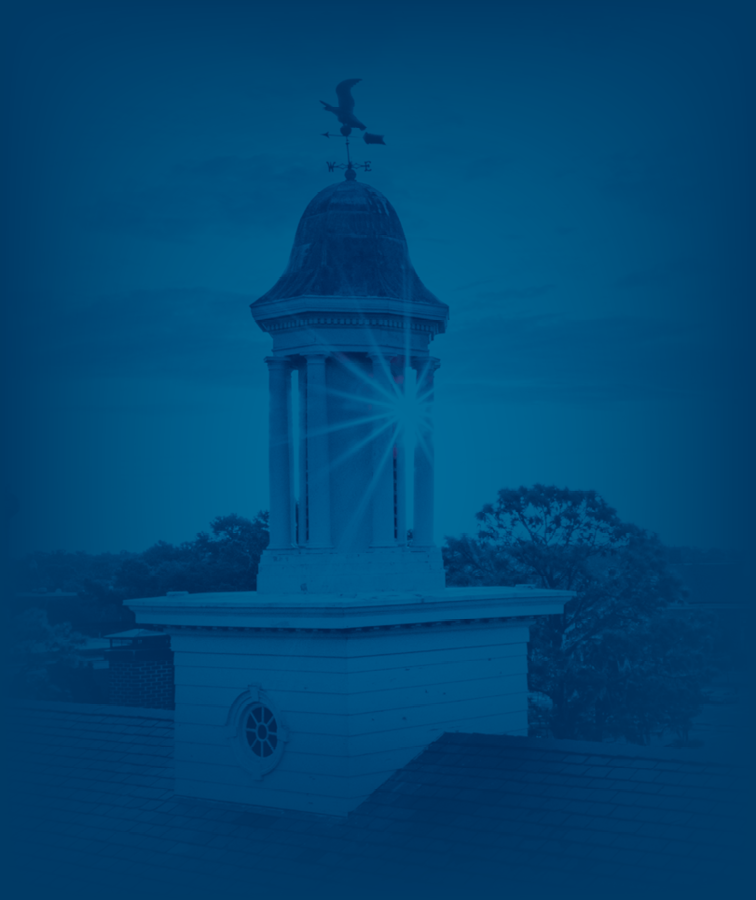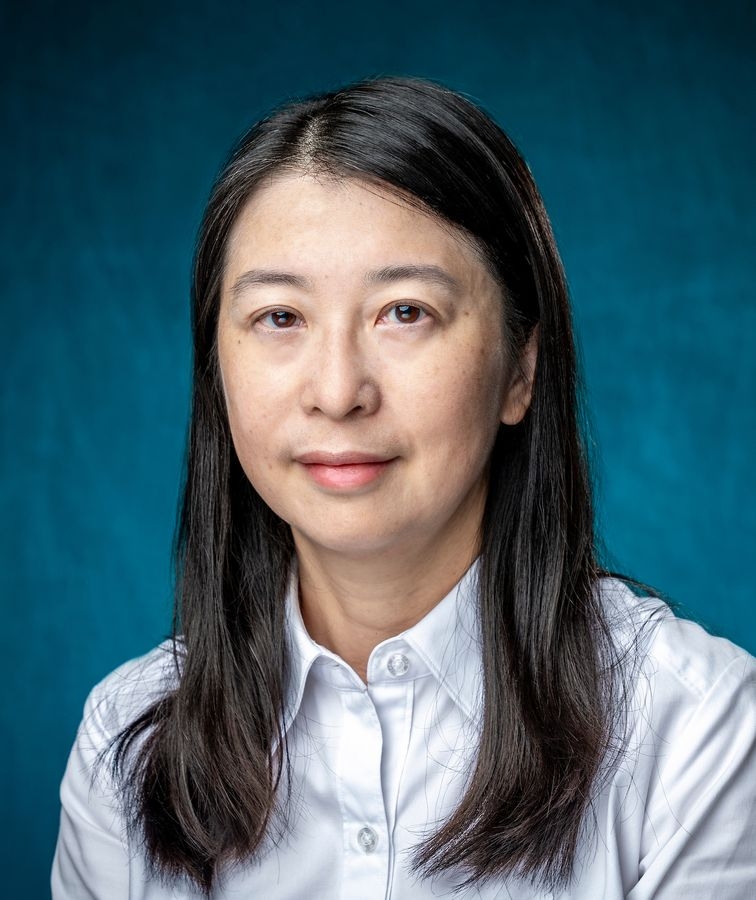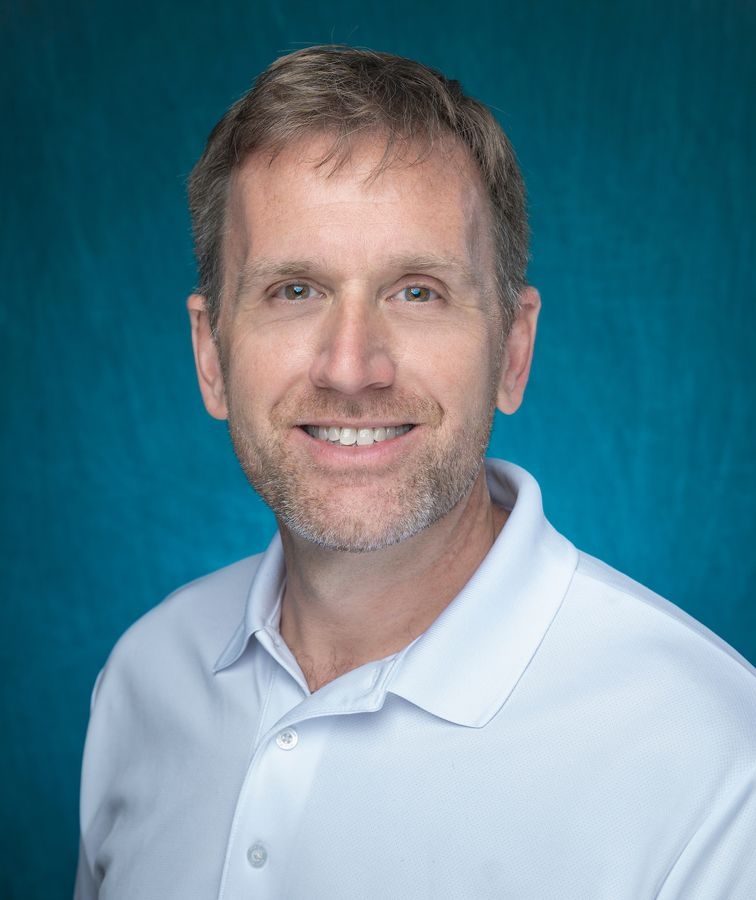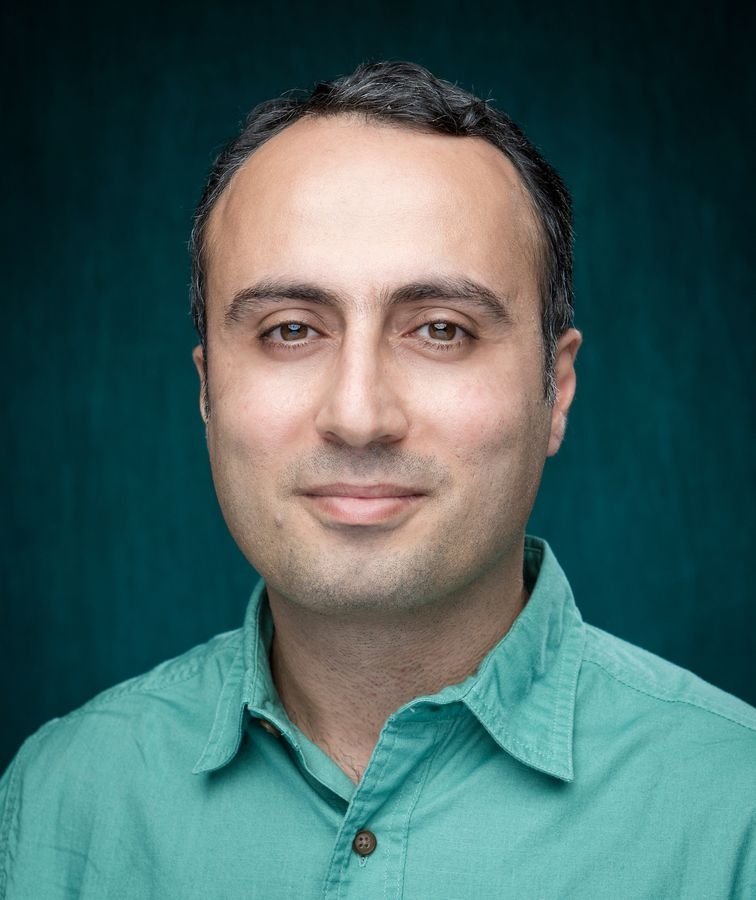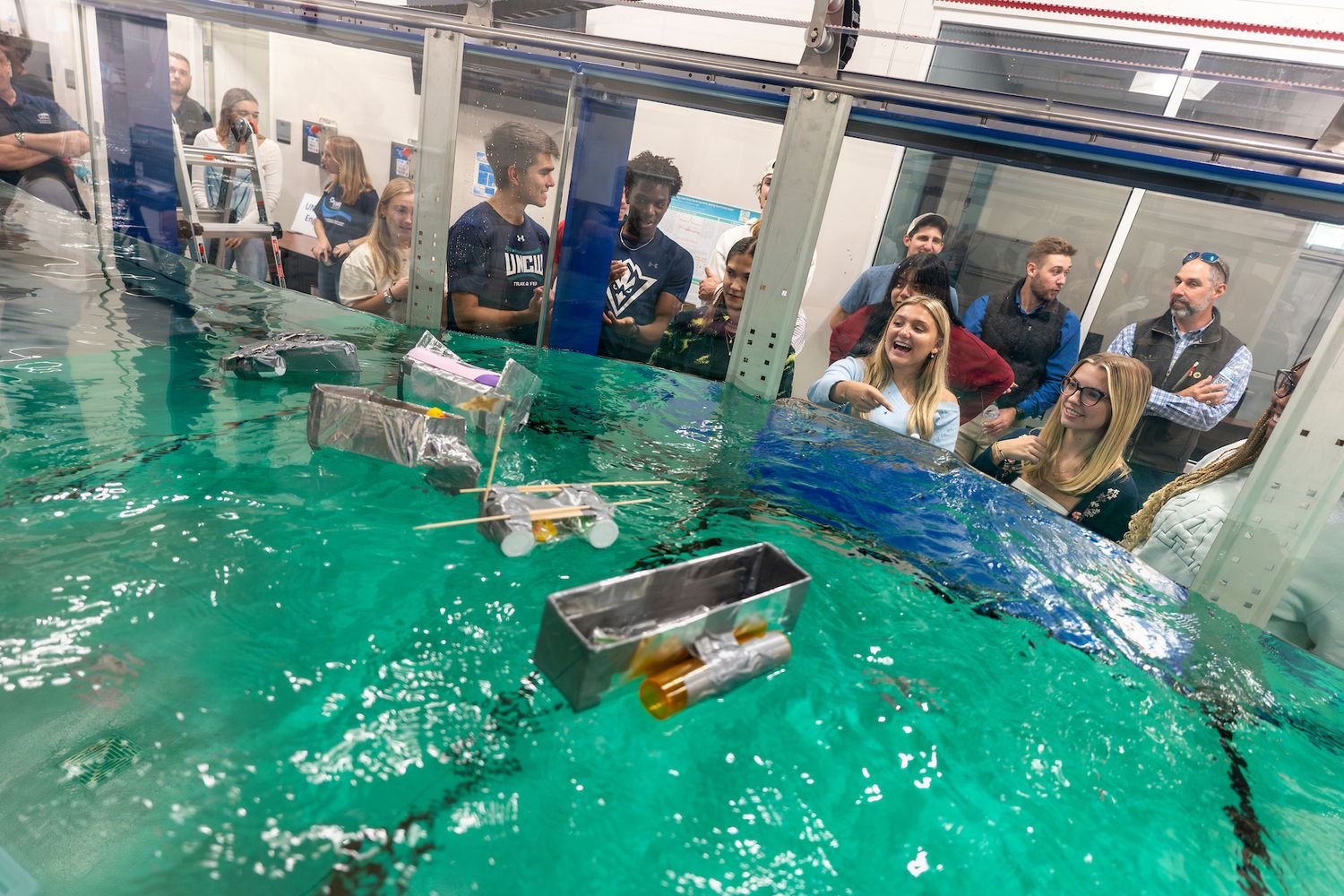
Photo: JeffJanowski/UNCW
Every day, UNCW engineering students are involved in significant research projects, both on campus and in the community.
Arden Ganse might be found on Masonboro Island, taking drone images to identify natural erosion processes. Charlie Caputo is likely to be in the robotics lab, developing code for robotic tumor resection during surgery. And this fall, Preston Beachum joins a team working on a software system for healthcare providers to find relationships among patient-reported symptoms.
While these activities are typical for those pursuing master's or doctoral degrees, these students are still undergraduates, working and studying daily alongside UNCW faculty members. Ganse, Caputo and Beachum represent UNCW's three engineering programs, coastal, intelligent systems and software engineering, respectively. Associate Professor of Practice Amy Reamer, engineering programs coordinator, said the university carefully curated the undergraduate student experience in the discipline.
"Our goal is to offer students a personalized journey," Reamer said. "With small class sizes, high-quality instruction and opportunities for research and faculty mentorship, our brand of engineering is caring and student-centered."
Ron Vetter, dean of the College of Science and Engineering, said the engineering curriculum is enhanced with entrepreneurship and a solid liberal arts foundation.
"We want our graduates to be well-rounded and equipped with outstanding technical skills, but also with an innovation-ready entrepreneurial mindset," said Vetter.
Participation in undergraduate research has changed these students' university experiences and inspired the trajectory of their post-graduate study and future careers.
Ganse studies coastal erosion with Associate Professor and Director of Coastal Engineering Joe Long. Using drone imagery and computer modeling, they are mapping physical processes, including hurricanes, to inform coastal management decisions and assess the vulnerability of coastal communities and ecosystems.
"I started being involved in research after my freshman year, which is unheard of at most universities," she said.
Working with Assistant Professor Hamed Saeidi (computer science) on a surgical robotics project, Caputo designs computer code, either for a robot to follow or for humans to use as they interact with the robotic system.
"I'm designing robotics code as well as running experiments, testing and training the system," he said. "We're moving very quickly here and getting funded to do it."
Beachum will work with Yi Liu, associate professor in Software Engineering, in collaboration with Shannon Ford, assistant professor in the School of Nursing, on the INSIGHTs System, which provides network graphs, correlation plots and centrality plots to visualize patient symptom interactions. This spring, a group of computer science and software engineering students completed the first prototype of a web-based version.
Beachum's role in the next phase is to enhance the system's architectural design to support new applications and accommodate additional datasets.
"It's a great opportunity to get hands-on experience and learn as much as I can while I'm here," he said.
Reamer said UNCW engineering will continue to build programs that are innovative and interdisciplinary.
"We want to play to our strengths as the coastal institution in the UNC System, while also being nimble and responsive to industry needs," she said. "I see our programs as a 'choose your own adventure' type of experience that is unique to UNCW."
Coastal Engineering – Developing innovative solutions to coastal challenges, such as rising seas and hurricanes, through civil engineering principles and training in wave mechanics, coastal structures and dredging
Intelligent Systems Engineering – Designing and building next-level solutions through advanced computing, pattern recognition, mechanical learning, robotics and other forms of artificial intelligence
Software Engineering – Creating software solutions to complex problems using industry-standard processes and tools, while learning principles of engineering entrepreneurship
This article has the following tags: CHHS - College of Health & Human Services CMS - Center for Marine Science CHHS Research & Faculty Affairs Innovation & Discovery Engagement CMS Research & Innovation CSE - College of Science & Engineering Research & Innovation Area CSE Research & Innovation



